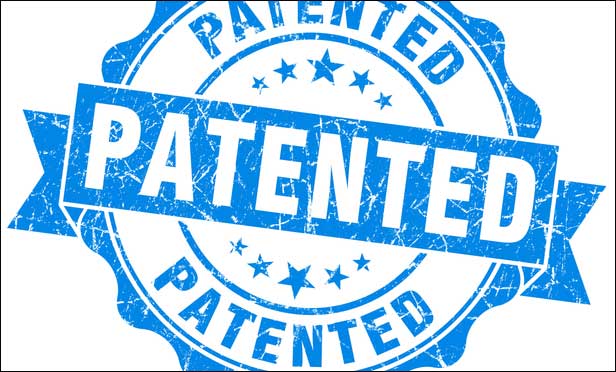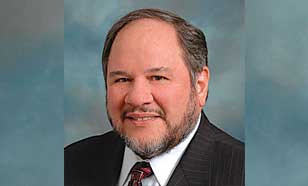Anthony S Volpe

March 03, 2015 | The Legal Intelligencer
The Ownership Complexities Associated With a 'Simple' CopyrightA concept as simple as a copyright that attaches upon the creation of the work can be subject to complexities that cause courts and lawyers to struggle with who owns the rights and what is needed to transfer those rights. Those struggles with ownership are the result of complex ownership rights in the Copyright Statute, U.S. Code, Title 17. This article focuses on one case and will not attempt to unwind the entire ownership issue under the various iterations of the statute.
By Anthony S. Volpe and Joseph Boos
9 minute read

January 07, 2015 | The Legal Intelligencer
Good-Faith Belief of Invalidity Defense to Patent InfringementThe U.S. Court of Appeals for the Federal Circuit previously established that a good-faith belief of non-infringement is a defense against induced infringement. Recently, the Federal Circuit held that a good-faith belief that the asserted patent is invalid is a defense against induced infringement in Commil USA LLC v. Cisco Systems, 720 F.3d 1361 (Fed. Cir. 2013). During the upcoming U.S. Supreme Court term, the court is set to review the Federal Circuit's recent decision that a good-faith belief of invalidity is a defense against induced infringement. If the Supreme Court upholds the Federal Circuit's Commil decision, a defendant having a good-faith belief that an asserted patent is invalid may be able to avoid induced infringement liability.
By Anthony S. Volpe and Tom Gushue
8 minute read

January 06, 2015 | The Legal Intelligencer
Good-Faith Belief of Invalidity Defense to Patent InfringementThe U.S. Court of Appeals for the Federal Circuit previously established that a good-faith belief of non-infringement is a defense against induced infringement. Recently, the Federal Circuit held that a good-faith belief that the asserted patent is invalid is a defense against induced infringement in , 720 F.3d 1361 (Fed. Cir. 2013). During the upcoming U.S. Supreme Court term, the court is set to review the Federal Circuit's recent decision that a good-faith belief of invalidity is a defense against induced infringement. If the Supreme Court upholds the Federal Circuit's decision, a defendant having a good-faith belief that an asserted patent is invalid may be able to avoid induced infringement liability.
By Anthony S. Volpe and Tom Gushue
8 minute read

December 03, 2014 | The Legal Intelligencer
U.S. Supreme Court's 'Alice' Decision Opens a Rabbit HoleThe U.S. Supreme Court's recent decision announcing the framework for determining patent-eligible subject matter under 35 U.S.C. Section 101 has created a rabbit hole that will require a rethinking of intellectual-property protection strategies.
By Anthony S. Volpe and Jonathan Lombardo
8 minute read

October 01, 2014 | The Legal Intelligencer
The Uncertain and Shifting Currents for Proving Patent DamagesA recent decision from the U.S. Court of Appeals for the Federal Circuit, VirnetX v. Cisco Systems, 2014 U.S. App. LEXIS 17748, highlights the uncertain and shifting currents for proving patent damages. This case caption is somewhat misleading because the damages issues actually focused on Apple products. In any event, the specific defendant is not important except to note that the size of the defense team and the availability of experts are not determinative of the outcome on damages.
By Anthony S. Volpe and Matthew E. Herd
9 minute read

August 06, 2014 | The Legal Intelligencer
Patent Case Serves as Reminder That the Details MatterIt has long been recognized that all co-owners of a patent have an independent right to full ownership of the patent. This is somewhat akin to the real estate concept of tenants by the entirety. This principle has led to a number of procedural issues under Federal Rule of Civil Procedure 19 when one co-owner has refused to join a suit asserting a jointly owned patent.
By Anthony S. Volpe and Jonathan M. Dunsay
9 minute read

June 04, 2014 | The Legal Intelligencer
'Points in Time' Next Approach to Willful Infringement Analysis?The U.S. Court of Appeals for the Federal Circuit, in the recent nonprecedential opinion Bose v. SDI Technologies, 2014 U.S. App. LEXIS 4812 (Fed Cir. 2014), analyzed several different "points in time" to determine whether a defendant, charged with inducement and contributory patent infringement claims, had the requisite level of intent required to support these indirect infringement theories. In Bose, the Federal Circuit reversed a summary judgment holding of no liability based on the conclusion that SDI may have had the requisite level of intent for indirect infringement at "several points in time," and therefore the summary judgment of no liability at those points in time was improper.
By Anthony S. Volpe and Jonathan Lombardo
10 minute read

April 02, 2014 | The Legal Intelligencer
Risk of Proving Patent Invalidity Without Expert TestimonyThe U.S. Court of Appeals for the Federal Circuit recently reversed a summary judgment of patent invalidity from the U.S. District Court for the Eastern District of Pennsylvania because the proponent of invalidity failed to produce expert testimony as to "the knowledge and understanding of the relevant technology by persons of skill in the field of the invention," in Elcommerce.com v. SAP AG, Case No. 11-1369, 2014 U.S. App. LEXIS 3357 (Fed. Cir. Feb. 24, 2014).
By Anthony S. Volpe
8 minute read

February 05, 2014 | The Legal Intelligencer
Procurement Contract Terms Can Be Fatal to Patent RightsRecent district court and U.S. Court of Appeals for the Federal Circuit decisions highlight the importance of carefully drafted procurement contracts when there is a possibility that patent rights may attach to the item being procured.
By Anthony S. Volpe and Tom Gushue
10 minute read

December 04, 2013 | The Legal Intelligencer
Is Amendment Addressing Patent Trolls Really Needed?The news has been full of various proposals for addressing the perceived evils associated with patent assertions by a patent owner that have been identified at different times as a patent troll, a patent assertion entity and a nonpracticing entity (hereinafter collectively referred to as a troll).
By Anthony S. Volpe
7 minute read
Trending Stories
- 1Restoring Trust in the Courts Starts in New York
- 2'Pull Back the Curtain': Ex-NFL Players Seek Discovery in Lawsuit Over League's Disability Plan
- 3Tensions Run High at Final Hearing Before Manhattan Congestion Pricing Takes Effect
- 4Improper Removal to Fed. Court Leads to $100K Bill for Blue Cross Blue Shield
- 5Michael Halpern, Beloved Key West Attorney, Dies at 72
More from ALM
- Scan In Progress: Litigators Leverage AI to Screen Prospective Jurors 1 minute read
- Legal Speak at General Counsel Conference East 2024: Match Group's Katie Dugan & Herrick's Carol Goodman 1 minute read
- Legal Speak at General Counsel Conference East 2024: Eric Wall, Executive VP, Syllo 1 minute read



